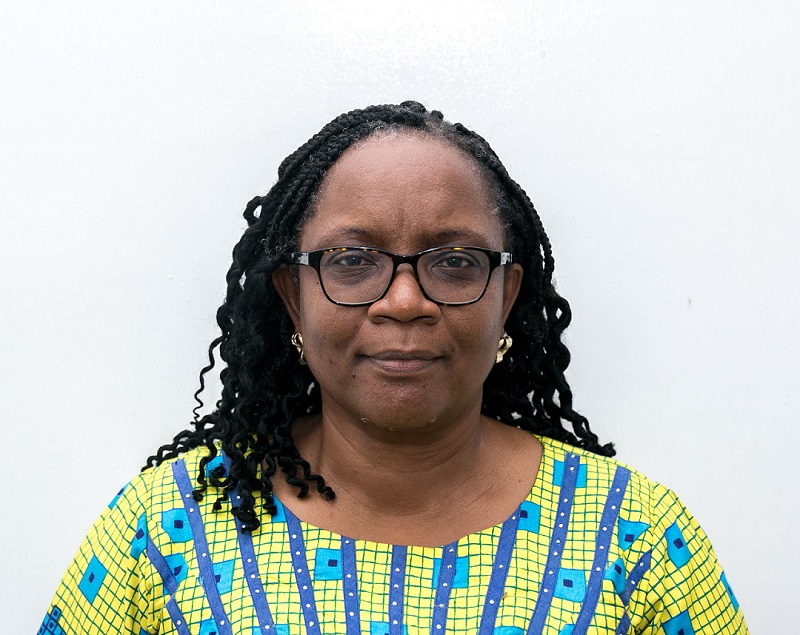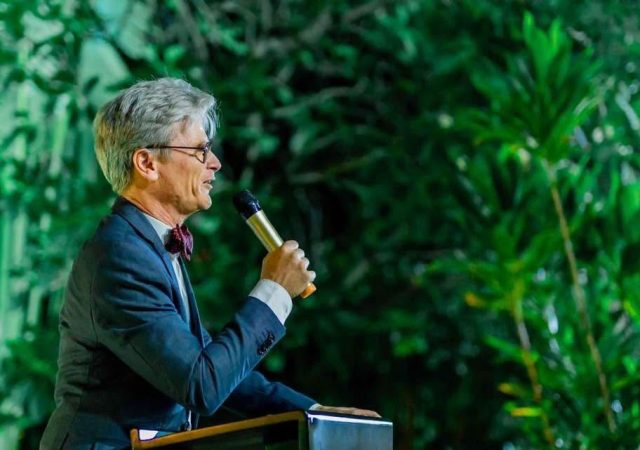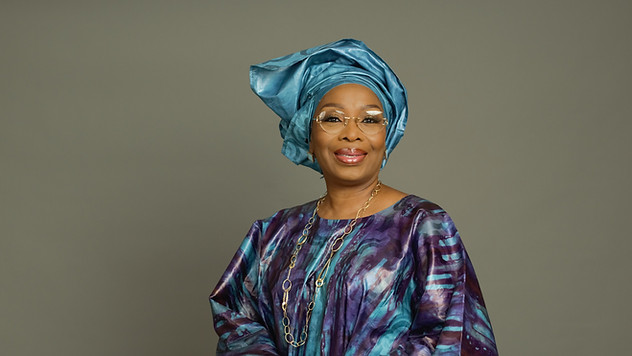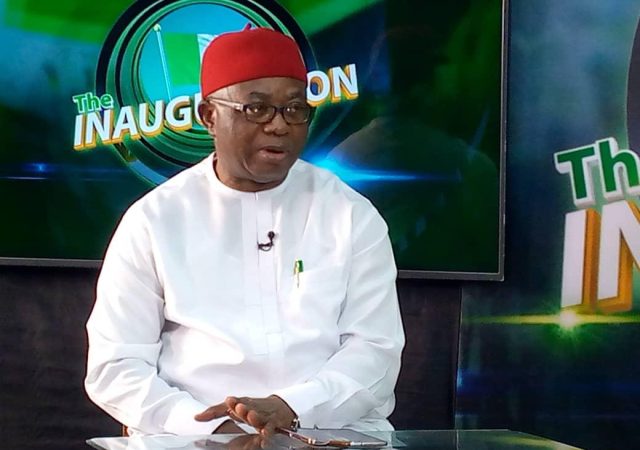
Dr. Priscilla Ibekwe is a Consultant in Public health and Disaster Management with over 25 years’ experience in public health, health protection, emergency preparedness, business continuing planning, disaster management and recovery, strategic planning and health systems strengthening. She leads on partnerships, funding, resource management, strategy and planning in the health sector. Priscilla is skilled in participatory engagement; capacity building, mentoring, wealth creation, service sustainability, negotiation and effective communication at all levels.
Priscilla speaks exclusively to Sunday Oyinloye, Publisher, Green Savannah Diplomatic Cable on disaster management at home and organisations
Excerpts:
You wrote a book on emergency preparedness and response plans for schools; the second on emergency preparedness and disaster management. What prompted you to write the books?
What prompted me was that I felt we were not really prepared for emergency as far back as 2010. In the UK, I worked on two portfolios as a public health physician consultant; sexual health and HIV and also health protection. Health protection is about managing disasters; how the health sector responds to disasters when they happen. These are my core areas and that got me interested in what was going on in Nigeria. When I looked at the website, there was very little information about disaster management. Again, some of the information on the websites of some organisations were things that most people could not do or afford, for instance, having air conditioner in the house to prevent heat. How many people can afford that? But there are simple information that could have been given like telling people to drink more water, stay under the shade and all that. Then, I got more interested in what was going on in Nigeria from 2010, when you look at contingency and what National Emergency Management Agency (NEMA) was doing at that time, they were trying to establish state emergency management agencies and they were also trying to write up guidelines for the nation. They had a lot of work to do and a lot of agencies and organisations would wonder what does emergency got to do with them. But while NEMA was doing a lot of work creating awareness on emergencies and disasters and what organisations could do, it became apparent that there was very little information for individuals and families. And there is always something that somebody can do, so I felt that I could use the knowledge that I have to write to fill some of those gaps and support what fantastic organisations like NEMA was doing.
What impact have your books made?
The books have made quite some impacts, first in the sense that I have written to the general audience and some people have bought these books, read them, and told me that they have found them useful. I have also written to certain organizations, like the book on what schools can do in terms of preparedness. A lot of schools bought those books and are beginning to put them into good use. I have also written the one on HIV in humanitarian setting, you find out that organisations have bought them. It gives them a better understanding of disaster management in Nigeria. Again, we have to understand that the reading culture is very poor. Historically, books don’t quite sell very well. But the issue is this, when you empower even one person because of the information they found in your book, they can save lives. What is my knowledge to me if it’s only for myself? Again, some of these information, they pass down to their friends and help them to navigate how they respond to disasters. Sometimes, these things are not immediate and you cannot completely quantify them, because when an occasion comes you find yourself responding in the correct manner. For me, I have a personal fulfillment. I have done my personal investment to write these books and publish them. I haven’t written any of the books to make gains, but if it helps somebody or a sector, then I think I have gotten my gains.
One of your books is on disaster/HIV. What is the link?
When disasters happen, sometimes people are displaced and lose everything. They are disoriented and you might find that the community cohesion also decreases and they are in a vulnerable situation. People can take advantage. Women may be taken advantage of, girls may be taken advantage of, or they might indulge in unprotected sex because they have to feed their family. That put them at risk. Not only that, people who have HIV are disadvantaged. The book is actually talking about a sector wide approach to disaster. When people are displaced, you need to provide HIV messaging to that community that is displaced. You also need to WASH; water, sanitation and hygiene services. Where people are displaced, you have to provide make-shift water and toilet facilities for them. These might be in dark places or far distance from where people are and who goes to fetch water? It is children and women and possibly they might go in the evening and somebody takes advantage of them. So it’s about that sector being aware that in trying to do good, you may actually be citing things in the wrong places. And then for people who have HIV, some of them are weak with their immune system, you want to make sure that the commodities that are available are being handed and prioritized. Really, disaster in humanitarian setting is for you to also look at the essential services that is to be provided and that humanitarian workers should not take advantage and should also not put themselves in a disadvantaged position. It’s really a sector wide approach, making them understand the impact of disaster that can put people at risk.
I want to know preventive measures families and organisations should take?
Emergency preparedness is everybody’s business, responding to disaster is everybody’s business because we live in a community, so for you as an individual you have to be prepared. That is why the first book was written. You need to call a family meeting at least once in six months where everybody in the house seat down together to say this is our house, where are the entrances , how do we get in and out. What do we know about disasters that have happened in this area and other related questions. Also within your house, you watch out for danger points. Where is gas cylinder kept, where do we turn off the light? That is why it’s a family affair which should include the househelp and the security man. How do you place your photographs that have glass frames, particularly in the North where you have windstorm? Some of these things are very important. You have to do a risk assessment and put measures in place to avoid being caught in disaster situations. Make sure that wires are not hanging and everybody has to know where to switch off electricity if there is electric spark. Also in your family, you should have out of area contact number. If you live in a particular town, say Abuja and you have a family of five , you can decide that your grandma’s number in another city should be used as out of area contact number. If there is a disaster in Abuja, you don’t need to call each other; you only need to call grandma. So when you call grandma, she will say that she has heard from child one, child two ,child three, four and five. She will give you the report. You don’t need to do five numbers. Another thing is as part of your family plan; you should have certain essential things that should be in the house. Your medicine should not run out. You should have dried food that can last for at least one week, have drinking water and all that. There are certain things that you shouldn’t run out of at least for certain number of days, in case there is a sudden curfew. The next thing you should consider is to have an emergency grab-bag. This is a bag that can contain one or two dresses, some dry foods, a little money, and books for children, so that if there is emergency, and you have about five minutes to get out of the house, you grab this bag and you are out. Besides, you should have all your certificates scanned and emailed to yourself or put in the cloud in case of fire disaster. The other part is organisations. They have a role, the floods have occurred; now we have covid-19. That is the more reason why organisations need to prepare. How do they protect their staff, how can they have a business continuity, how will they work in disaster situations? You need to know, who are your core staff, your main suppliers, how to keep certain supplies, no matter what, Organisations need to plan to understand where their core business is so that when the unexpected happens, they can survive.
What are the basic things to do in disaster situations?
The basic thing to do in case of any disaster is to stay informed. You have to stay alert to know from the radio, television and the social media what is going on and what you should do. That is where you get your information on what you need to do when disasters happen. It is advisable that everyone has torchlight at home. Reason, because how do you get to the door if there is no light and there is emergency? It is also advisable to have battery operated radio or a rechargeable operated radio and also torchlight with battery .You should have all alternatives, battery, solar etc. Your battery must always be charged in case you have to call for help or know what is going on. Another important thing to have is a whistle. Everybody in the house should have a whistle because if a house collapses, you may not be able shout enough, but if you blow a whistle, the rescuers will know that you are still alive. Even when you are travelling, you should have a whistle in your bag to draw attention to yourself in case of any emergency.









